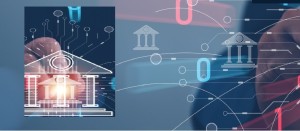As we sat eating our barbecue with the candles flickering on the dinner table, we joked about the stage 4 load shedding, our dying batteries and how we wouldn’t be able to finish the Netflix series tonight. A small challenge to face, and hardly an inconvenience compared to the millions of students wanting to study that night.
Poor management, failing infrastructure and load shedding can be very detrimental to a student’s education. This is a reality in the developing world. Mention the words “load shedding” in many first world countries and you’ll be met with a blank expression…mention it in South Africa and you’ll hear “it’s a part of our life”.
Many countries and cities in other parts of the world experience complete blackouts for protracted periods of time. Imagine you’re a student learning English and studying for an important exam, and load shedding or a power blackout occurs…
What do you do? You are totally reliant on the battery life left in your phone or computer, or if you’re fortunate enough to have an alternate battery backup system. And if your battery lasts you long enough, you’re still reliant on municipal and government infrastructure for cellular and internet connectivity.
Compare this to an article I read in Edtech Magazine regarding first world education.
“The IT network is the backbone of the modern learning environment, and when power is interrupted, nobody earns a passing grade…The estimated 22.2 million higher education students served by 4,298 colleges and universities throughout the country depend on technology to be accessible anytime, anywhere — and always on.”
Challenges to Online Distance and Location-based Learning
Reliable and predictable electricity supply is critical with online education and access to learning material and the internet, and tutors and lecturers need it for proper collaboration and the tools built into learning management systems. It is also required for communication between students and lecturers who are not in the same geographical locations.
As English Forward progresses and we focus on geographically dispersed students having access to equal learning opportunities, particularly in the higher education sector, we assume that they will have some access to a digital device and the internet, and this is already challenging in many parts of the world. Add to this an unreliable power supply, and you have growing challenges on the development of online distance and location-based learning.
Social and economic inequalities are pervasive in global education, and the electricity crisis many faces adds another layer to the unequal playing, or rather “learning” field. This greatly impacts the short, medium and long term socio-economic status of entire communities in developing countries.
The power crisis impacts both teachers and students, limiting their ability to fully engage in the digitally enabled educational environment, leaving, in many cases, the educational process to rely on archaic methods and systems.
Tragic Consequences in the Offing
The bright light of enthusiasm in a young students mind slowly becomes a dimming light at the end of the proverbial tunnel of hope, and their dreams are extinguished by the lack of access to stable power systems and the internet.
Tragically, it is the students who already have the lowest level of access to the benefits of digital education that are also most likely to impacted by an unstable electricity supply, compounding the problem and creating a greater socio-economic chasm.
So how could we address this challenge and create a solution that is sustainable and accessible to students in power challenged areas?
That is the question and the challenge I put to the leaders in the cellular and alternate energy sectors.
Disclaimer: This is a guest article. The views, opinions and positions expressed within it are those of the author alone and do not represent those of Cryptopolitan. The accuracy, completeness and validity of any statements made within this article are not guaranteed. We accept no liability for any errors, omissions or representations. The copyright of this content belongs to the author and any liability with regards to infringement of intellectual property rights remains with them.





